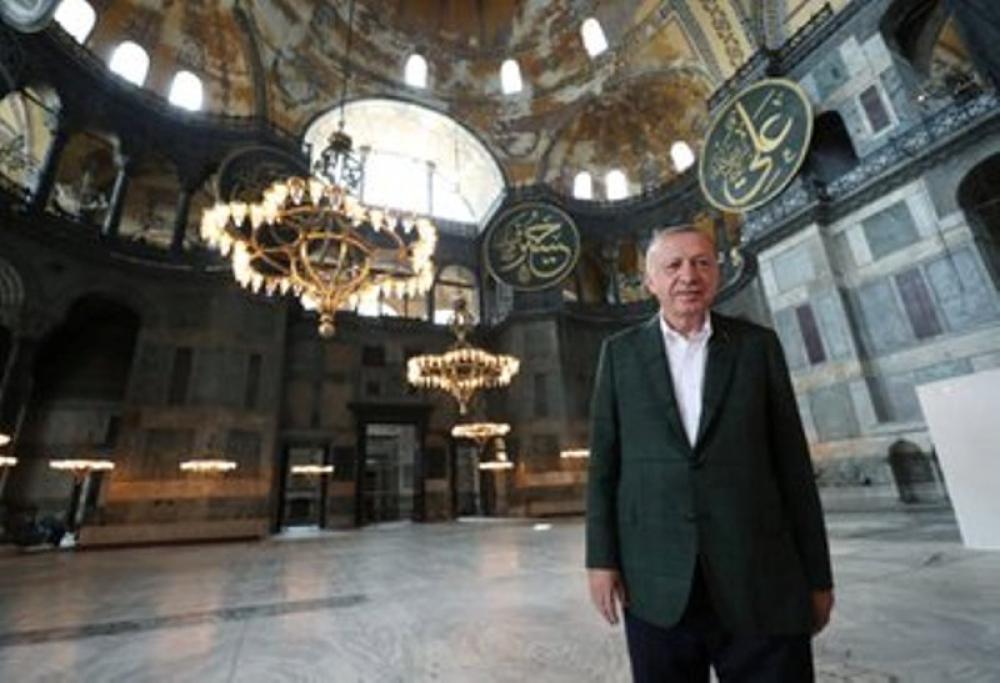Just Earth News | @justearthnews | 19 Jul 2020, 09:47 pm Print

Recep Tayyip Erdogan Twitter page
Ankara/Sputnik: Turkish President Recep Tayyip Erdogan paid a visit to the Hagia Sophia in Istanbul on Sunday, where he saw work in progress inside the landmark ahead of the first Muslim prayers scheduled for Friday after the museum's conversion into a mosque, and took a few photos.
On July 10, Turkey's highest administrative court, the Council of State, annulled the decree converting Hagia Sophia into a museum.
The move was not particularly welcomed abroad. Austria, France, Greece, Cyprus, Russia and the United States were among the countries that expressed regrets over Ankara's decision, while Turkey views the matter as its internal affairs.
Erdogan shared the photos on Twitter, describing them with one word, "Ayasofya..."
The Turkish leader was accompanied by several ministers and the head of the Presidency of Religious Affairs, as well as Culture and Tourism Minister Mehmet Nuri Ersoy and Istanbul Governor Ali Yerlikaya, who briefed Erdogan on the work inside Hagia Sophia.
The former Christian cathedral was founded by Byzantine Emperor Justinian on December 27, 537. The church, considered the epitome of Byzantine architecture, was the world's largest building for over a thousand years. After the capture of Constantinople by the Ottomans and the fall of the Byzantine Empire in 1453, the cathedral was converted into a mosque, but since 1934, the building, by a decree of the founder of the Republic of Turkey, Mustafa Kemal Ataturk, became a museum and was included in the UNESCO World Heritage List.
- Former New Zealand PM Jacinda Ardern to relocate to Australia amid growing Kiwi exodus
- United Kingdom launches eVisa for Indian visitors starting today — Here’s what travellers need to know
- Abandoned at birth, Punch the macaque finds global love as crowds flock to Tokyo zoo
- YouTube Premium Lite just got a massive boost — Know all details
- Trump claims he stopped 35 million deaths by stopping India-Pakistan war





-1763561110.jpg)
